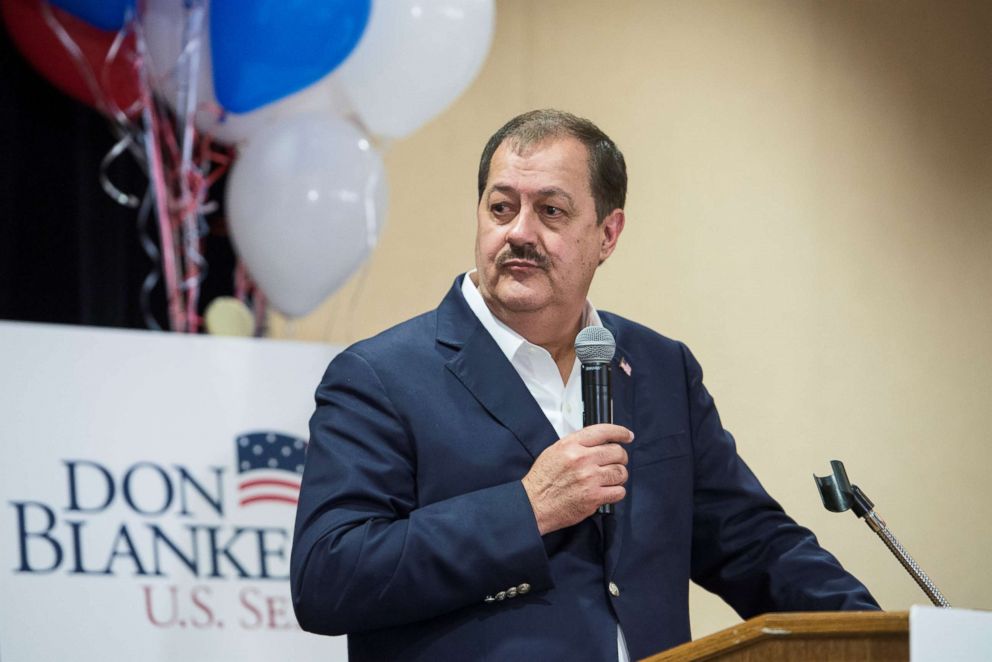McConnell campaign cashes in on 'Cocaine Mitch' taunt with popular t-shirts
Some say the t-shirts make light of serious drug abuse issues.
Turning the disparaging nickname "Cocaine Mitch" on its head, Senator McConnell's campaign says they have hit fundraising gold.
The campaign is capitalizing on the moniker, bestowed on the Senate Majority Leader in 2018 by West Virginia Senate candidate, Don Blankenship, by selling t-shirts emblazoned with a silhouette of McConnell, half-shrouded in a cloud of cocaine powder. The graphic is loosely based on marketing materials for the Netflix show "Narcos," and depicts McConnell as a tough, edgy leader.
The campaign is also selling stickers with the logo, suggesting supporters place them on their laptops in a Tweet that says "Your computer will blow them away."
McConnell's campaign Twitter account rolled out the paraphernalia on the one-year anniversary of the release of a Blankenship campaign ad, in which the former coal executive said with a smirk: "One of my goals as U.S. Senator will be to ditch Cocaine Mitch."

That ad did not explain the nickname, but in a later statement, Blankenship's campaign explained it was a reference to unfounded allegations that a shipping company run by the father of McConnell's wife, Transportation Secretary Elaine Chao, transported drugs.
Blankenship lost the Republican primary in West Virginia.
Now, McConnell's campaign is urging supporters to "join the Team Mitch Cartel" by contributing $35 dollars to the campaign for a t-shirt.
The shirts are seemingly popular: the campaign tweeted that the single-day online fundraising record was broken Wednesday. The campaign website has been updated to detail instructions for placing bulk orders, and the campaign has tweeted a GIF of drug money being counted.
But some are speaking out against the shirts, suggesting they are inappropriate or hypocritical.
Eric Conrad, who has worked on Democratic campaigns, including President Obama's in 2012, pointed out on Twitter that Republicans often support more severe sentences from drug offenders. McConnell's campaign replied to his criticism, saying "If we sell enough #CocaineMitch shirts, we'll buy you a sense of humor."
Tanya Meeks, a Lexington, Kentucky resident, and founder of the anti-drug organization Stop Heroin Lexington, started a petition against the shirts. Meeks, whose son died of a heroin overdose, wrote in an open letter to Senator McConnell that "the shirts are not acceptable anywhere, but in a state that is ground zero for opioid addiction, it is reprehensible."
McConnell's home state, Kentucky, suffered the fifth highest rate of overdoses in the country in 2017.
"The shirts aren’t just offensive, they’re a painful and cruel joke to those of us grieving a terrible loss or fighting desperately to save a loved one," Meeks said.
The campaign could not immediately be reached for comment.
Nationwide, nearly 20% of overdose deaths in 2017 involved cocaine, a 34% increase from 2016, according to the CDC. Nearly three-quarters of overdose deaths involving cocaine also involved opioids.
In March, the largest cocaine seizure in a quarter century was made at the Port of New York/Newark, according to the Drug Enforcement Agency. The resurgence in cocaine is due, in part, because of a surplus in Colombia, which used to eradicate coca plants but no longer do that, resulting in an overabundance of supply.
Josh Holmes, McConnell's former chief of staff, said there isn't a single member of Congress who has done more to combat drug addiction, and pointed to a $87 million dollar federal grant awarded to University of Kentucky researchers in April to reduce opioid deaths. McConnell advocated for Kentucky with Secretary of Health and Human Services Alex Azar and the National Institutes of Health.
Holmes also said the shirts speak to McConnell's sense of humor.
"The name itself is the result of what was nothing but a completely slanderous attack on his family," Holmes said. "He decided to embrace it, make humor out of it and it's become somewhat of a viral sensation."
ABC News's Meridith McGraw contributed to this report.



